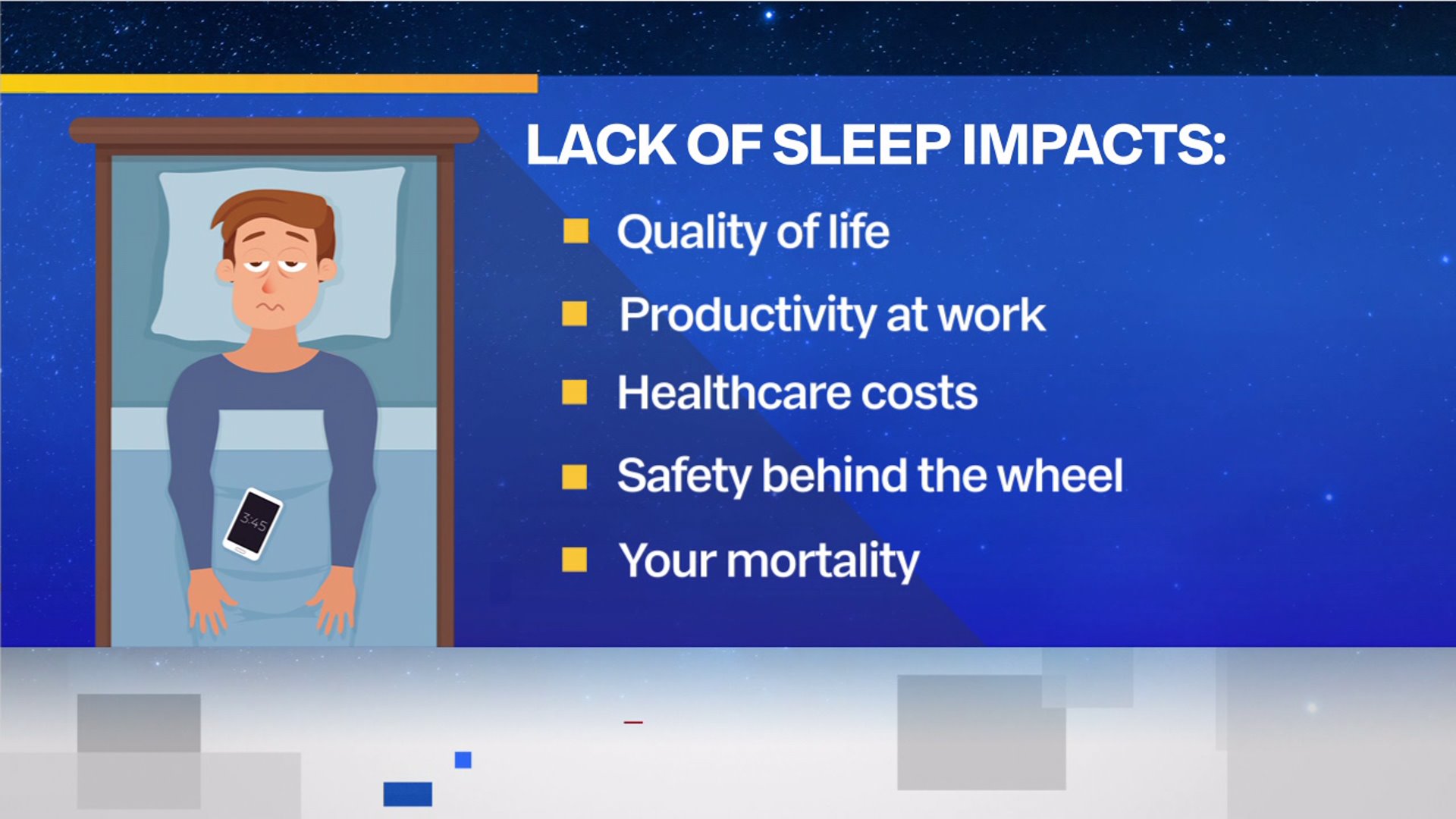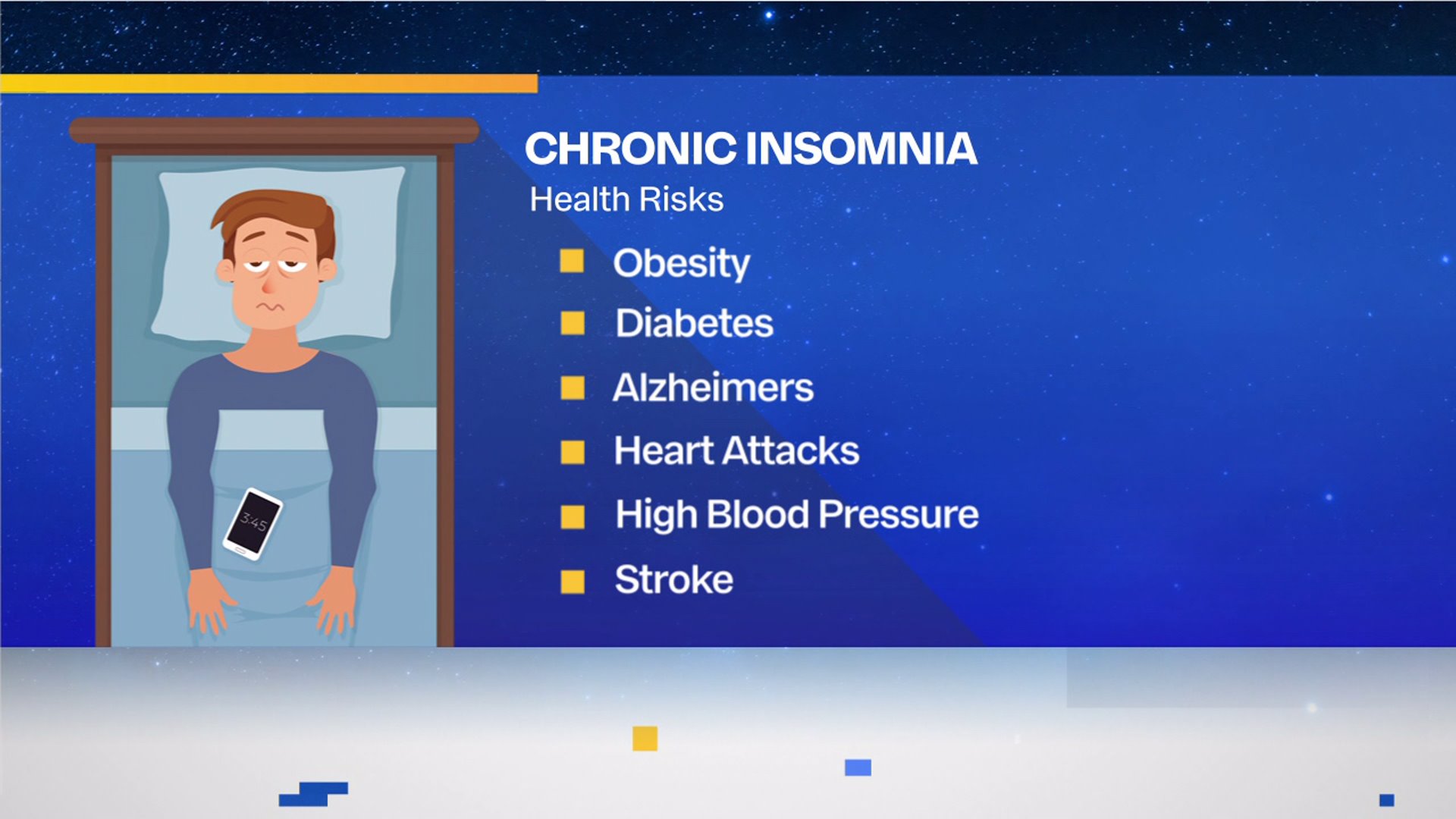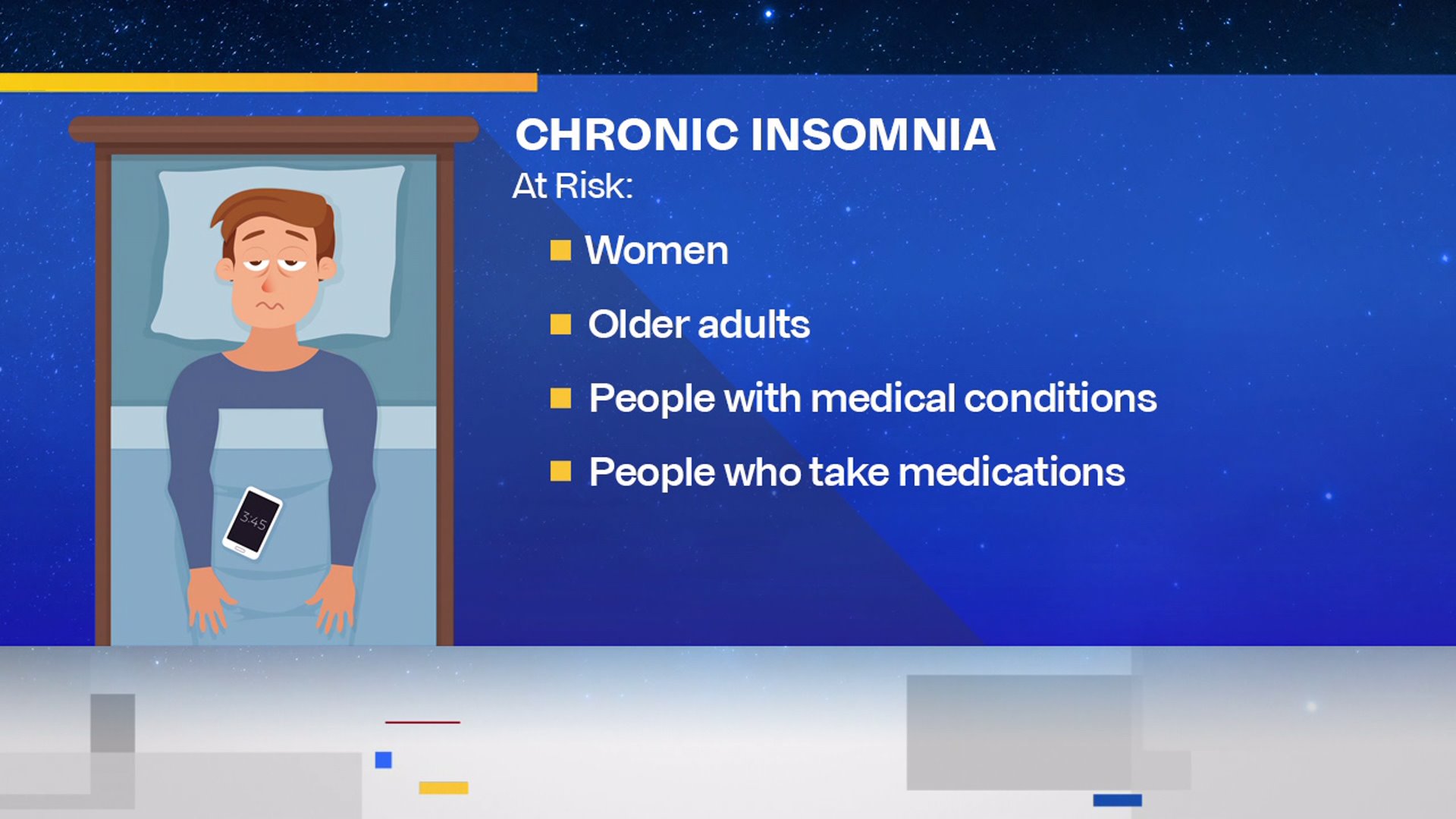KANSAS CITY, Mo. — If you’re one of the millions of Americans who have tried everything from quick fixes to therapy, but you still cannot sleep soundly, you may have chronic insomnia.
University of Utah’s Dr. Kelly Baron said one in 10 people have chronic insomnia.
“Difficulty falling asleep, staying asleep, waking up too early at least three times a week and happening for at least three months,” Dr. Baron said.
The exception is when you`ve had a significant life event disrupt your sleep.

“So if you go through a change in job or stressful event at home, some people have insomnia for a couple of weeks, or months, then it resolves on its own,” Dr. Baron said.
When it`s happening, though there are consequences. It impacts your mood, which can then impact your social life. It also makes it difficult to concentrate at work–your productivity suffers.
On top of all that, your memory lets you down. Then after enough sleepless nights, you begin worrying about sleep.
Chronic insomnia could impact your health

“And that leads to feeling unrefreshed, perhaps even a little depressed or more fatigued, and then it has health risks,” Dr. Baron said.
Those health risks can be serious such as obesity, diabetes or even Alzheimer’s in the long-term.
Those who have chronic insomnia are at a higher risk of heart attacks, high blood pressure and stroke.
If you are a woman, older adult, have a medical condition, or take medications, you may be more at risk for insomnia.
How to treat it
FOX4 consulted many different sources for information about sleep problems, and almost every single one pointed back to one solution: cognitive behavioral therapy.
“Cognitive behavioral therapy is a set of techniques that helps people learn how to relax in the evening, and it also helps regulate your biological rhythm to get your sleep back on track,” Dr. Baron said.
There are resources available online, but Dr. Baron said it’s best to meet with a trained sleep specialist from an accredited sleep center.
She suggests checking behavioralsleep.org for specialists in your area. Most insurance will cover this therapy, she added.
“Most people do improve,” Dr. Baron added. “Those 75 or 85 percent of patients who go through this treatment, which is pretty short, it`s six sessions, about that many people will improve and have a remission of their symptoms.”
If you take sleep medications, and they don`t help, CBT can be the answer.

“My favorite type of patients to see with this technique are people who are taking sleep medications and they`re still not sleeping,” Dr. Baron said. “They`re getting all the side effects and they`re still not getting the effect of the medications.
Even your child could benefit.
“It`s been shown to be effective in older adults, younger adults, and children, so really, across the board,” Dr. Baron said.
At Children`s Mercy, they make sure a child has a good sleep schedule and no sleep apnea. Then they also turn to CBT.
“If all that is under control, then usually we`re talking about what can we do from a behavioral point of view,” Children’s Mercy Hospital Dr. David Ingram said. “And many times reframe what they think about sleep to help with their sleep, their insomnia, and that is usually the best treatment for insomnia.”
For most, a first step is a sleep study. There are many places to go in the Kansas City metro.









